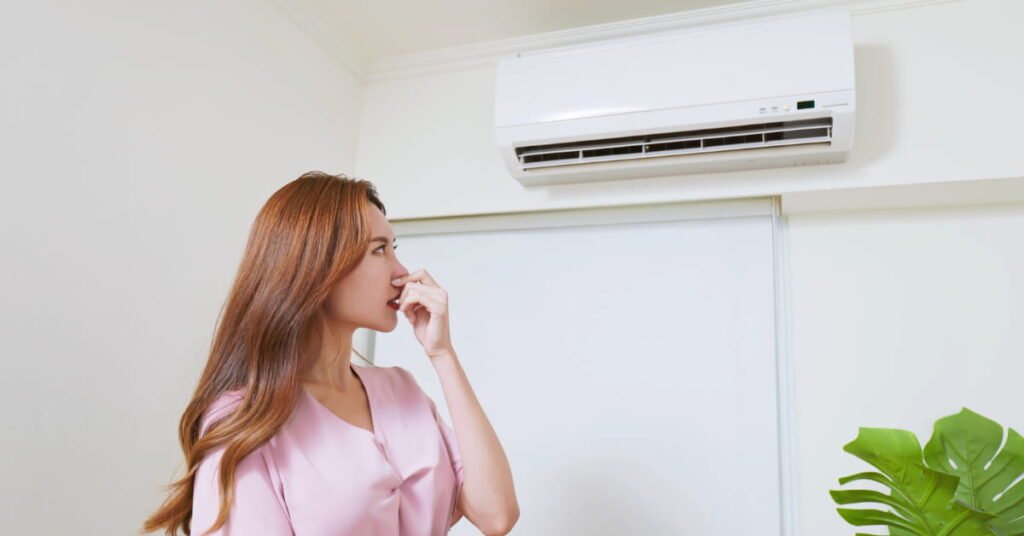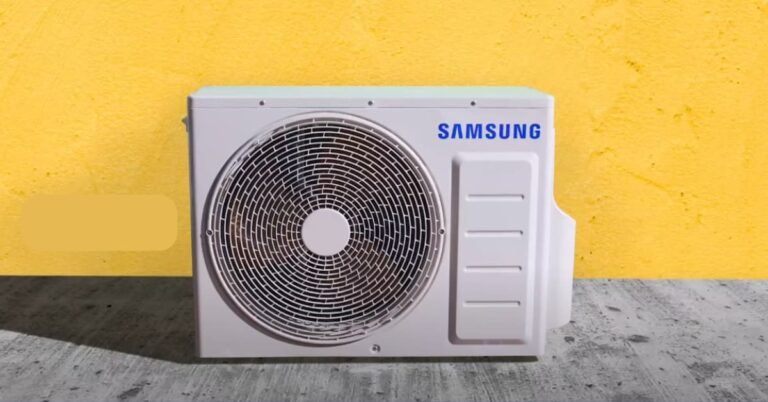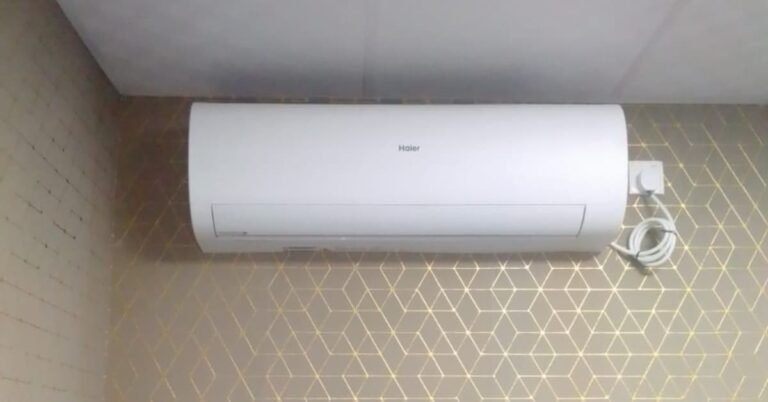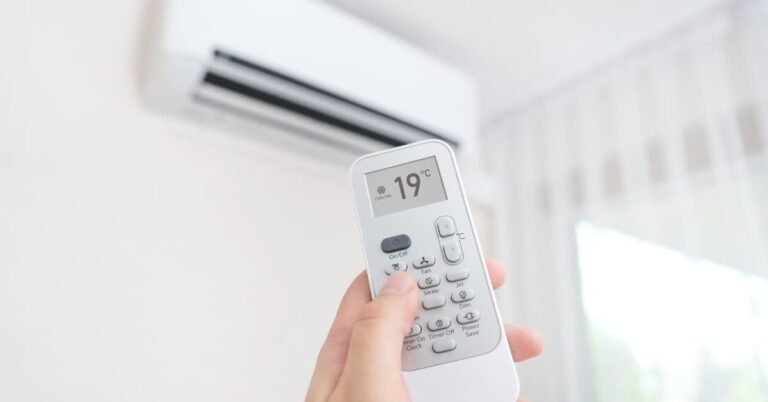Home Air Conditioner Smell Like Paint Thinner- 7 Solution
When your home air conditioner emits a smell resembling paint thinner, it’s crucial to address the issue promptly. The presence of this odor can be attributed to the use of chemical cleaners or solvents near the unit. These substances release volatile organic compounds (VOCs) into the air, causing an unpleasant smell.
By identifying the source, removing the chemicals, ventilating the area, and thoroughly cleaning the air conditioner, you can effectively eliminate the paint thinner smell.
To tackle this issue and achieve a clean and odor-free indoor environment, it’s vital to comprehend the necessary steps.
Why Does Home Air Conditioner Smell Like Paint Thinner?
There are various reasons why your home air conditioner may smell like paint thinner, including chemical cleaners, mold growth, electrical issues, or improper installation and maintenance practices.
By addressing each potential cause, you can eliminate the odor and ensure safe and efficient operation of your air conditioning system.

1. Chemical Leak
If the scent of paint thinner emerges from your home air conditioner, it might signify a chemical leak within the system.
This particular smell is often caused by a refrigerant leak, such as Freon. Refrigerants have a distinct chemical aroma when released into the air.
How to Fix?
To effectively address a chemical leak in your air conditioner, it’s crucial to follow these step-by-step instructions:
1. Ensure Safety: Prioritize safety by turning off the air conditioner and disconnecting it from the power source. This prevents potential accidents or electrical mishaps.
2. Ventilate the Area: Open windows and doors to enhance ventilation and allow fresh air to circulate throughout the room. This step helps reduce the concentration of any lingering chemical fumes.
3. Locate the Leak: Take the time to carefully inspect the air conditioning unit for visible signs of leakage. Look for oil stains or discoloration, which can indicate the source of the refrigerant leak.
4. Call a Professional: It is highly recommended to contact a licensed HVAC technician to handle refrigerant leaks. These professionals possess the necessary expertise and equipment to safely repair the leak and recharge the refrigerant, if required. Attempting to fix a refrigerant leak without the proper knowledge can be risky and may result in additional damage or injury.
5. Avoid DIY Repairs: Resist the temptation to address the leak yourself, as refrigerants are potentially hazardous substances. Handling them without proper training can lead to severe health consequences and environmental harm. Leave the task to the professionals.
By promptly addressing a chemical leak and seeking professional assistance, you ensure the safety of both your air conditioning system and the occupants in your home.
2. Overheating Compressor
If your home air conditioner gives off a scent similar to paint thinner, it may indicate an overheating compressor.
The compressor plays a critical role in the air conditioning system, and when it overheats, it can produce unusual odors.
How to Fix?
To effectively resolve an issue with an overheating compressor, follow these step-by-step instructions:
1. Turn off the air conditioner and unplug it from the power source to eliminate any potential electrical hazards.
2. Allow the Compressor to Cool Down: It’s essential to let the air conditioner cool down for a minimum of 30 minutes before proceeding with any troubleshooting steps.
3. Check for Obstructions: Inspect the outdoor unit and ensure no debris, plants, or other objects are obstructing the airflow around the compressor. Adequate airflow is crucial for preventing overheating. If any obstructions are present, remove them carefully.
4. Clean the Condenser Coils: Dirt and dust buildup on the condenser coils can impede heat transfer, leading to compressor overheating. To address this, gently clean the coils using a soft brush or a vacuum cleaner with a brush attachment. Be thorough, but avoid excessive force that could damage the coils.
5. Ensure Proper Fan Functionality: Verify that the fan is spinning freely and that the fan motor is operating correctly. Any issues with the fan’s operation should be promptly addressed by a professional technician.
6. Inspect Electrical Connections: Take the time to inspect the electrical connections and the wiring leading to the compressor. Look for any loose or damaged wires, and if you notice any, consult a professional to handle the necessary repairs.
7. Consider Professional Maintenance: Regular professional maintenance for your air conditioner is highly recommended. Scheduling routine inspections and maintenance helps to prevent future issues, including problems with the compressor or other crucial components.
3. Contaminated Air Filters
If your home air conditioner emits an unpleasant odor resembling paint thinner, contaminated air filters could be the cause.
Over time, air filters can become clogged with dust, dirt, and other pollutants, resulting in foul smells being circulated throughout your space.
How to Fix?
To effectively address the issue of contaminated air filters and the accompanying odor, follow these steps:
1. Turn off the air conditioner and unplug it from the power source for safety reasons.
2. Locate the Air Filters: Air filters are typically installed behind a removable panel on the indoor unit or located in the return air ducts. Refer to the user manual if you’re having trouble finding them.
3. Remove the Filters: Carefully remove the air filters from their housing. Note the direction of airflow indicated on the filters for proper reinstallation.
4. Assess the Condition: Inspect the filters visually. If they appear dirty, clogged, or discolored, it’s a clear sign of contamination. In some cases, filters may even have a musty smell.
5. Clean or Replace the Filters: Depending on the type of filters you have, you can either clean or replace them.
- Cleaning: If the filters are washable, rinse them under running water until all visible debris is removed. Gently pat them dry with a towel and let them air dry completely before reinstallation.
- Replacement: If the filters are disposable or heavily soiled, it’s best to replace them with new ones. Make sure to purchase filters of the correct size and type recommended by the manufacturer.
6. Clean the Air Filter Housing: While the filters are out, take the opportunity to clean the filter housing using a damp cloth or vacuum cleaner to remove any accumulated dirt or dust.
7. Reinstall the Filters: Once the filters and housing are clean, reinstall the filters in the correct direction of airflow as indicated on the filters. Ensure that they fit securely in their designated slots.
8. Regular Maintenance: To avoid future issues with contaminated air filters and odors, establish a regular maintenance schedule. Follow the manufacturer’s recommendations for filter cleaning or replacement intervals.
4. Mold or Mildew Growth
If your home air conditioner emits a musty smell similar to paint thinner, it could indicate the presence of mold or mildew growth within the system.
Mold and mildew thrive in moist environments and can develop within the air conditioner’s various components.
How to Fix?
To effectively address mold or mildew growth and eliminate the associated musty odor, follow these steps:
1. Turn off the air conditioner and unplug it from the power source to avoid any potential electrical hazards.
2. Locate the Source: Mold or mildew can grow in different parts of the air conditioner, including the air ducts, evaporator coil, drain pan, and condensate drain line. Identifying the specific location of the mold or mildew growth is crucial for effective remediation.
3. Call a Professional: Given the potential health risks associated with mold, it’s best to contact a professional HVAC technician who specializes in mold remediation. They have the expertise and tools to properly assess the situation and take appropriate remedial measures.
4. Clean the Air Ducts: If mold or mildew growth is detected in the air ducts, professional cleaning is recommended. Specialized equipment is used to remove the contaminants without spreading them further.
5. Remove Mold or Mildew from Components: If mold or mildew is present on visible components like the evaporator coil or drain pan, the technician will clean and disinfect these parts using appropriate cleaning solutions.
6. Address Water Accumulation: Mold and mildew thrive in damp environments, so it’s crucial to address any water accumulation. The technician will inspect the condensate drain line and ensure it’s not clogged or blocked, allowing proper drainage.
7. Improve Ventilation: Enhanced ventilation can help reduce excessive humidity levels and create an inhospitable environment for mold and mildew growth. The technician may recommend additional ventilation strategies or upgrades if necessary.
8. Regular Maintenance: To prevent future mold and mildew growth, schedule regular maintenance for your air conditioning system. This includes cleaning and inspecting the system, checking for water leaks and proper drainage, and ensuring adequate ventilation.
5. Chemical Cleaners or Solvents
If your home air conditioner emits a smell resembling paint thinner, it could be due to the use of chemical cleaners or solvents near the unit.
These strong-smelling substances can release volatile organic compounds (VOCs) into the air, causing an unpleasant odor.
How to Fix?
To resolve the issue of chemical cleaners or solvents causing a paint thinner smell in your home air conditioner, follow these steps:
1. Identify the Source: Determine if any chemical cleaners or solvents were recently used near the air conditioner. This could include cleaning agents, paint thinners, or other chemical products.
2. Remove the Chemical Source: If you find any chemical cleaners or solvents close to the air conditioner, remove them and relocate them to a well-ventilated area away from the unit.
3. Ventilate the Area: Open windows and doors to allow fresh air to circulate in the affected area. This will help dissipate any lingering odors.
4. Clean the Air Conditioner: If the smell persists, it’s important to clean the air conditioner to remove any residue from the chemical cleaners or solvents.
- Turn off the air conditioner and unplug it from the power source.
- Carefully remove any accessible covers or panels from the unit to access the interior components.
- Wipe down the interior surfaces with a damp cloth or sponge, using mild soap or a mixture of water and vinegar. Avoid using strong chemical cleaners as they may worsen the odor or damage the unit.
- Pay special attention to the evaporator coils, condensate drain pan, and any areas where the cleaners may have come into contact.
- Allow the unit to air dry completely before reassembling the covers or panels.
5. Air Out the Unit: After cleaning, leave the air conditioner unplugged and the covers or panels removed for a few hours to allow any remaining odors to dissipate.
6. Plug in and Test: Once the unit is dry and there are no strong odors remaining, plug in the air conditioner and test it. Check if the paint thinner smell has been eliminated.
6. Electrical Issues
If your home air conditioner emits an unusual smell, such as a burning or electrical odor, it could indicate electrical issues within the unit.
Electrical problems can pose safety risks and may require immediate attention.
How to Fix?
To address electrical issues causing unusual smells in your home air conditioner, it is crucial to prioritize safety. Follow these steps:
1. Turn off the Air Conditioner: Immediately turn off the air conditioner and unplug it from the power source to prevent any electrical hazards and further damage.
2. Call a Professional: Electrical problems should be handled by a qualified HVAC technician or electrician. Contact a professional to diagnose and repair the issue.
3. Describe the Odor: When speaking to the professional, provide specific details about the odor, such as its intensity, timing, and any accompanying symptoms. This information will aid in the diagnosis.
4. Inspect Circuit Breakers and Fuses: At this point, it’s essential to let the professionals handle the repairs. However, you can assist by checking the circuit breakers and fuses to ensure they are not tripped or blown. If you find any issues, inform the technician.
5. Professional Inspection and Repairs: The technician will perform a thorough inspection of the air conditioner’s electrical components to identify any faulty wiring, connections, or damaged parts. They will proceed with the necessary repairs or replacements.
6. Follow Manufacturer’s Recommendations: Once the repairs are complete, it’s crucial to follow the manufacturer’s recommendations for using and maintaining the air conditioner properly. This will help prevent future electrical issues and ensure the unit operates safely.
7. Regular Maintenance: Schedule regular maintenance checks for your air conditioning system to identify and address potential electrical issues before they escalate. This preventative maintenance can help avoid future odors and safety concerns.
7. Improper Installation or Maintenance
If your home air conditioner emits strange smells or odors, it could be due to improper installation or maintenance practices.
Improper installation and neglecting maintenance can cause problems like unbalanced refrigerant levels, dirty evaporator coils, or clogged condensate drains.
How to Fix?
To address issues related to improper installation or maintenance causing unusual smells in your home air conditioner, follow these steps:
1. Evaluate Installation: If the air conditioner was recently installed, inspect the installation for any visible errors or issues. Ensure that the unit is properly aligned, level, and securely attached according to the manufacturer’s guidelines. If you notice any concerns, contact the installation technician or company to rectify the installation errors.
2. Clean the Evaporator Coils: Dirty evaporator coils can produce musty odors and compromise the performance of the air conditioner. Turn off the air conditioner and unplug it from the power source. Refer to the user manual or manufacturer’s guidelines to locate and access the evaporator coils. Gently clean the coils using a soft brush or commercially available coil cleaner designed for this purpose. Avoid using excessive water or force that could damage the coils. Once cleaned, allow the coils to dry completely before reassembling.
3. Unblock Condensate Drains: Clogged condensate drains can cause water accumulation, leading to unpleasant odors and mold growth. Locate the condensate drain line, typically found near the indoor unit. Carefully remove any obstructions from the drain line using a thin brush or specific tools designed for this purpose. Confirm that water can flow freely through the line and that the drain pan is clean.
4. Check Refrigerant Levels: Improper refrigerant levels can affect the cooling performance and lead to odors. This task requires specialized equipment and should be performed by a professional HVAC technician. Contact a qualified technician to inspect and adjust the refrigerant levels if necessary.
5. Regular Maintenance: Establish a regular maintenance schedule as recommended by the manufacturer. This includes cleaning or replacing air filters, inspecting and cleaning the evaporator coils, checking condensate drains, and scheduling professional tune-ups. Following a maintenance routine helps prevent future issues and ensures optimal performance.
Frequently Asked Questions
Is A Paint Thinner Odor From My Air Conditioner Harmful?
Inhaling paint thinner fumes can cause irritation to the respiratory system and should be addressed promptly.
How Can I Prevent My AC From Smelling Like Paint Thinner?
Regular maintenance, including cleaning coils and changing filters, can help prevent paint thinner-like odors in your AC.
Can A Dirty Air Filter Cause A Paint Thinner Smell In My Ac?
Yes, a dirty air filter can cause odd smells as airflow becomes restricted, affecting the system’s performance.
What Are The Potential Health Risks Of A Paint Thinner Odor From An Ac?
Exposure to paint thinner-like odors can cause headaches, dizziness, and respiratory irritation if not addressed promptly.
How Often Should I Schedule Maintenance For My Air Conditioner To Avoid Odors?
It’s recommended to schedule annual maintenance to keep your air conditioner running efficiently and odor-free.
Conclusion
When your home air conditioner emits a paint thinner smell, it’s crucial to promptly identify and address the underlying cause. Remove any chemical cleaners or solvents near the unit, ventilate the area, and thoroughly clean the air conditioner to effectively eliminate the odor. If the smell persists, it may indicate electrical issues that require professional attention.
Improper installation or maintenance can cause strange odors. Regular maintenance and following manufacturer’s guidelines will prevent issues and ensure a comfortable indoor environment.






